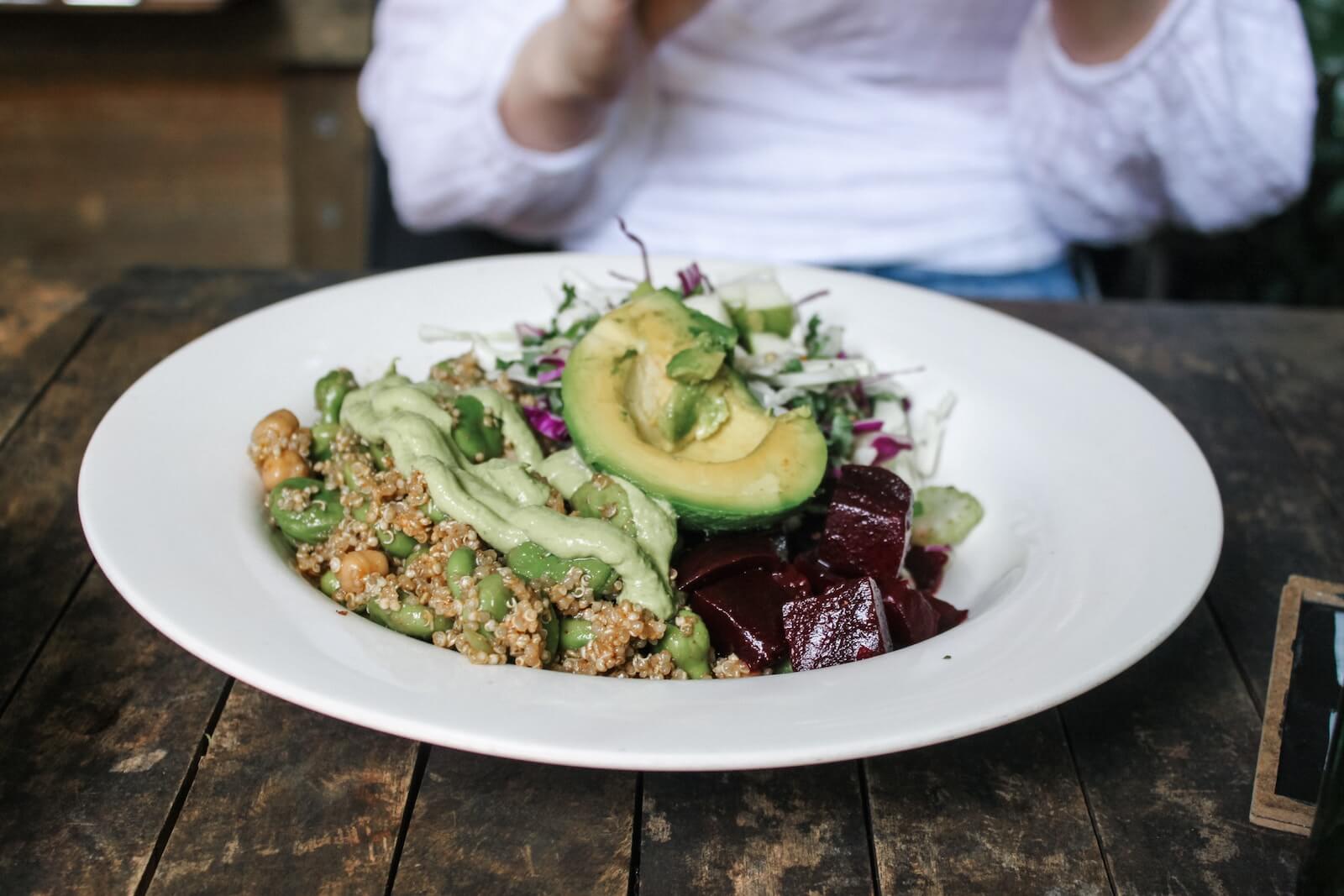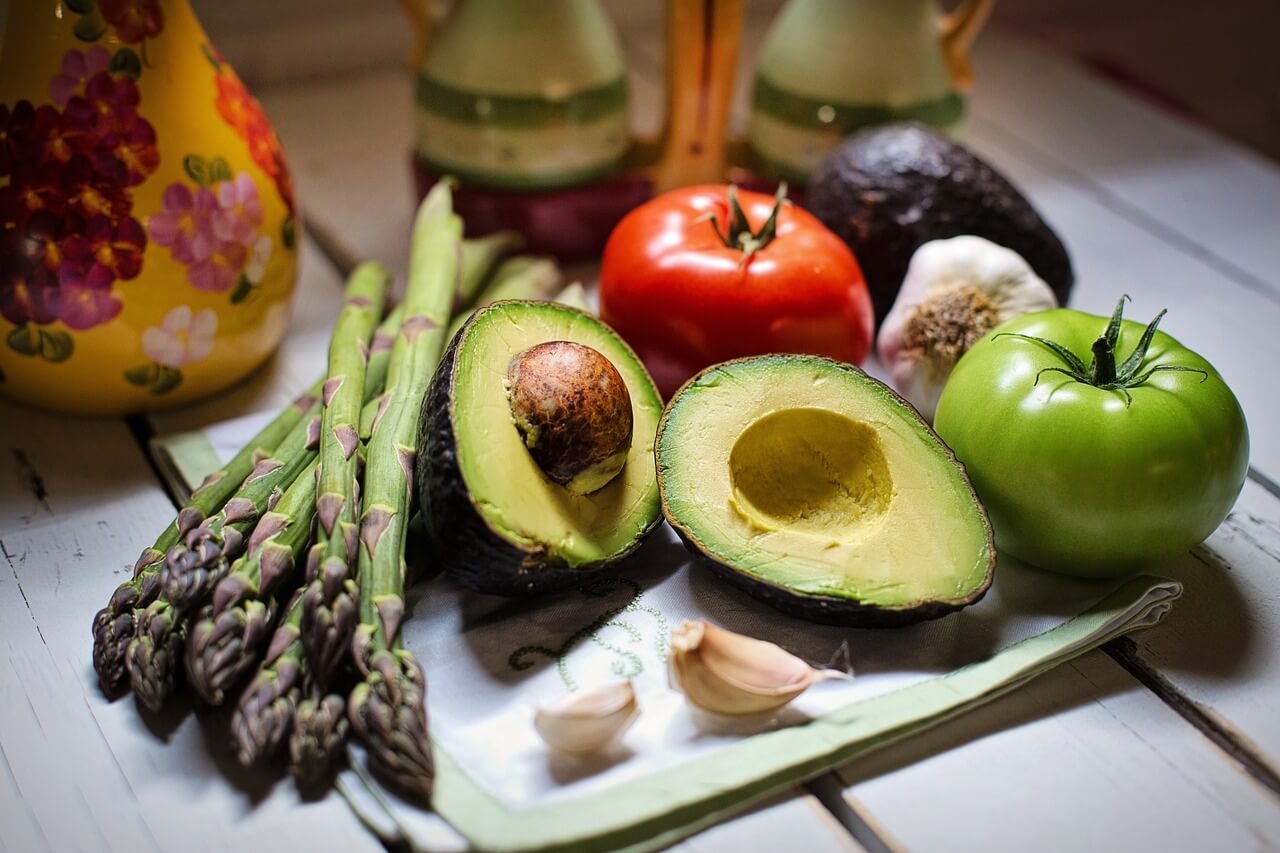FTC disclaimer: This post may contains affiliate links and we will be compensated if you click on a link and make a purchase.
Avocado has recently earned the status of being one of the most popular health foods. Its nutrient-dense profile and high concentrations of healthy monounsaturated fats have made it a highly sought-after food source for many people.
However, those suffering from gastritis may wonder if this healthy snack suits their diet. In this blog, we will discuss how avocados can potentially benefit individuals with stomach inflammation and provide information on the causes and symptoms associated with gastritis to help you make informed decisions about your diet to ensure optimal gut health.
We shall explore every aspect, ranging from understanding nutritional components that may lead to relief to addressing discomfort caused by gastritis in an effort to ascertain whether avocado really should form part of your dietary regime or not
Understanding Gastritis: Definition and Causes
Gastritis is an inflammation of the stomach lining which is usually brought on by a bacterial or viral infection. Common symptoms include abdominal pain, nausea, vomiting, and indigestion with varying levels of duration depending upon the severity and cause of it.
Gastritis Causes
Causes for gastritis range from lifestyle choices such as smoking and alcohol abuse to medical conditions including Crohn’s disease and ulcers; therefore it becomes vital to identify any underlying factors that could have caused your gastritis in order to provide effective treatment.
It is important to understand that diet plays an important role in developing and advancing gastritis.
Eating a lot of processed foods, fried food items, and unhealthy fats can be bothersome for the lining of the stomach, leading to inflammation.
When exploring possible dietary choices for those affected with gastritis, many turn to natural remedies such as avocados.
Although they are a very rich source of healthy fatty acids alongside other vitamins & minerals due to their high fiber content, over-eating them at once could worsen symptoms like abdominal pain or cramping related to gastritis.
It would be beneficial if cooked avocadoes were taken instead of raw ones when struggling against intestinal disorders caused by irritation from acidity since cooking will make it convenient for digestion within the body’s system
Gastritis Diet: Key Foods to Include
Those with Gastritis may need to adhere to a special diet in order for them to reduce inflammation, as well as prevent flare-up episodes.
Certain key foods should be included in the gastritis diet plan to provide benefits; avocado is one such food.
Avocado
Avocado contains antioxidants such as Vitamin C, E, and A, potassium, and fiber, making it an optimal choice for anyone suffering from this condition. The monounsaturated fats present within avocados can help lessen inflammation when ingested regularly.
In addition to its high fiber content, which promotes improved digestion and eases the irritation of gastritis-induced stomach lining inflammation, regularly consuming avocados as part of a balanced meal can help keep such symptoms at bay while supporting general health in those with this condition.
Cruciferous vegetables
Cruciferous vegetables such as Brussels sprouts, cabbage, cauliflower, and broccoli are also beneficial for people afflicted by gastritis due to their abundance of antioxidants, which aid in reducing inflammation alongside their fibers, facilitating better digestive processes.
Fatty Fishes
It is recommended for individuals suffering from gastritis to incorporate fish into their diet, as fatty fishes like mackerel and salmon contain omega-3 fatty acids which have anti-inflammatory properties that can help reduce the pain caused by inflamed stomach lining.
Whole grains
Whole grains such as quinoa or steel-cut oats are beneficial in regulating digestion while providing energy without significantly exacerbating acid production in the stomach.
Unsweetened almond milk or coconut water
Unsweetened almond milk or coconut water may be consumed to replace electrolytes lost during episodes of vomiting or diarrhea associated with gastric flare-ups due to said condition. Both beverages provide essential vitamins and minerals that promote good digestive health through low sugar levels containing magnesium and potassium respectively.
Avocado Benefits: Nutritional Breakdown
Avocados are an incredibly nutritious fruit with significant health benefits, particularly for those struggling with gastritis.
Avocados contain substantial amounts of dietary fiber, antioxidants, and healthy fats, which aid in providing relief to people afflicted by gastritis. Specifically, lauric acid is a type of saturated fat found in avocados and has been known to improve digestion while reducing inflammation levels associated with the condition.
Moreover, vitamins E, C, and potassium contained within these fruits help protect the digestive system from damage due to inflammatory reactions, while magnesium assists with controlling stomach acid production and calming muscles located inside the tract wall.
All these nutritional advantages make avocadoes an optimal choice for anyone looking to mitigate irritation or inflammation connected with gastritis
Avocado and Gut Health: The Connection
Avocado is increasingly becoming a favorite among health-conscious eaters as its popularity continues to skyrocket.
Not only does this delectable fruit possess a creamy texture and tantalizing bursts of flavor that can be utilized in different dishes or savored alone, but it has also recently been receiving attention for the possibility of improving gut health.
Studies indicate that consuming avocado regularly may benefit individuals with gastritis – an inflammation of the stomach lining that tends to affect people suffering from autoimmune conditions and other digestive problems.
The primary rationale for the potential of avocado to assist with gastritis lies in its high nutrient content. An exceptional source of dietary fiber and healthy fats, such as oleic acid, avocado can help reduce inflammation within the gut.
Additionally possessing lutein and zeaxanthin – antioxidants whose regular consumption has been found to have anti-inflammatory effects themselves – a moderate portion (1/4-1/2 whole) supplies an abundance of vitamins like B6, C, K, E folate, and potassium; some are known to lend support in healing mucosal issues natively related with gastritis.
Lastly, avocados include various plant compounds, including phytosterols, which may facilitate improved absorption of certain nutrients while also offering extra protection from inflammation connected with gastritis.
How Avocado Helps Reduce Stomach Inflammation
Avocado is rich in monounsaturated and polyunsaturated fats, which possess anti-inflammatory properties that can assist in abating inflammation within the stomach.
Moreover, research has established that lupeol — a compound contained within avocados — reduces inflammation significantly.
Furthermore, antioxidants such as vitamin C, carotenoids, and flavonoids are present in avocados; these substances play an integral role by constraining inflammation and advancing healing processes.
In addition to its helpful compounds, avocado provides an abundance of dietary fiber, which helps normalize bowel movements and avert constipation associated with gastritis conditions.
Consuming avocado on a consistent basis may resultantly aid one’s chances of alleviating any kind of stomach irritation related to gastritis given its nutrient content decreases swelling whilst providing essential dietary fiber for undisturbed digestion purposes.
Is Avocado Good for Gastritis: The Verdict
Avocado is often celebrated as a superfood due to its elevated content of nutrients such as vitamins, minerals, and healthy fats. Yet it remains unclear if avocado can effectively treat gastritis.
Studies: decrease symptoms associated with gastritis
Studies have demonstrated that consuming avocado on a daily basis has the ability to decrease symptoms associated with gastritis, including pain and indigestion.
However, before incorporating this fruit into one’s regimen for gastrointestinal health, it is essential to thoroughly contemplate benefits compared to potential risks concerning the product intake.
Presence of anti-inflammatory compounds
When ingested appropriately, avocado could potentially provide certain protective effects against inflammatory conditions like gastritis due to its plentiful concentration of anti-inflammatory compounds.
These substances decrease inflammation and minimize the distress resulting from excessive acid production associated with the condition.
Moreover, research suggests that consuming one small avocado daily may reduce the potential for developing H Pylori infection, which can worsen symptoms connected with gastritis.
Studies: high fiber content
Studies have demonstrated that avocados contain a high fiber content, which can bolster digestion and promote regularity, thereby possibly assuaging any flare-ups incurred by consuming trigger foods for gastritis, such as fried or processed items.
Additionally, increased intake of dietary fiber also works to stabilize blood sugar levels by restraining the absorption rate of carbohydrates – an act that may mitigate food cravings regularly linked with inflammation.
It is widely acknowledged that there are multiple potential health benefits associated with consuming avocados regularly.
However, it is essential to be aware of the possibility of experiencing adverse side effects such as weight gain and digestive distress should one overindulge.
Additionally, those who suffer from allergies may need to exercise caution when eating avocados due to their high allergen content.
Consequently, care should be taken before adding a large amount to your diet.
In summary, incorporating one small avocado per day in an individual’s dietary regime can potentially benefit people suffering from gastritis; yet consulting with a professional prior to significantly changing any diet regimen or believing this superfood alone can alleviate symptoms related to the condition remains advisable
The Bottom Line
In conclusion, avocados can be a wonderful addition to the diet of someone with gastritis. These fruits are filled with monounsaturated fats and essential vitamins and minerals that provide superior nutritive value.
Furthermore, they offer substantial amounts of dietary fiber which is beneficial for aiding in food digestion and keeping a healthy gut microbiome intact.
Moreover, the anti-inflammatory properties found within avocados may help reduce symptoms caused by stomach inflammation, providing an additional benefit to consuming them regularly.
Taking these advantages into consideration, it would seem that any potential risks associated with eating this fruit pale in comparison making them an ideal choice for anyone looking to better their gastrointestinal well-being while at the same time managing probable signs related to having gastritis



![8 Secrets of longevity: How to Live a Long and Happy Life [Definitive Guide]](https://healthyious.com/wp-content/uploads/2020/02/Secrets-of-longevity-how-to-live-long-life-640x360.jpg)






